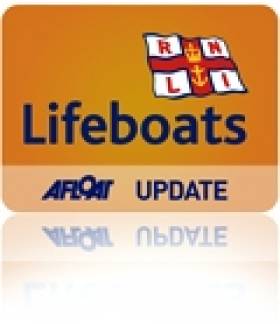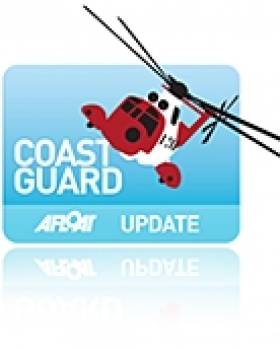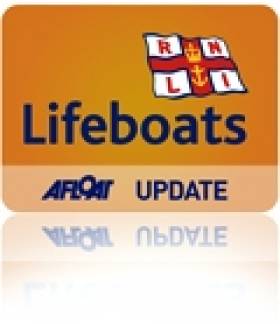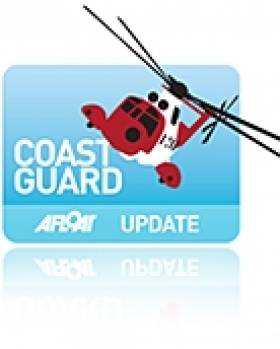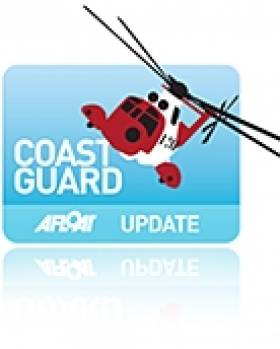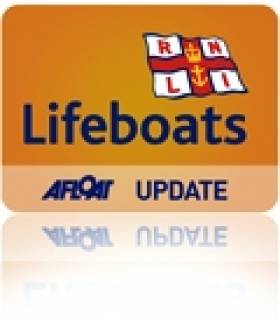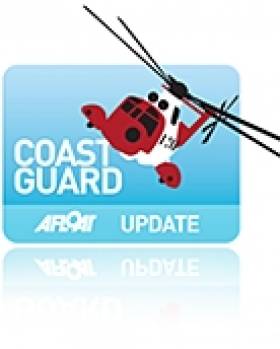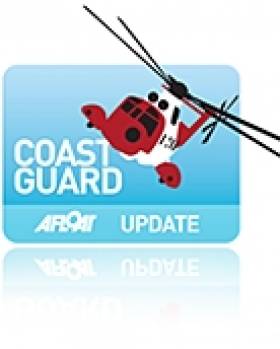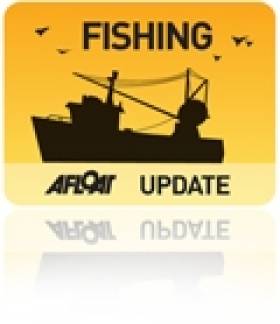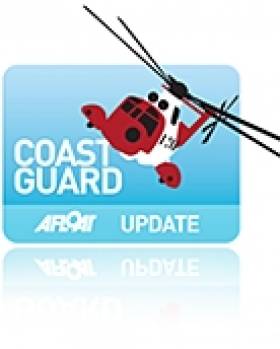Displaying items by tag: Bangor
Two Successful Rescues by Bangor Lifeboat
On Wednesday 22nd June at 8.20pm Belfast Coastguard received information that an 18ft speedboat with 2 persons aboard had struck rocks close to Groomsport. Volunteer crew quickly assembled and launched RNLI Bangor Lifeboat which proceeded at full speed to the stricken vessel. Thankfully the two people onboard the stranded vessel were able to scramble safely ashore before the Lifeboat arrived on scene. Crew aboard the Lifeboat rigged a tow line and towed the speedboat to the safety of Groomsport Harbour.
On Saturday 25th June at 1.15pm volunteer RNLI crew were alerted by rescue pager that a 35ft yacht with 3 people onboard had lost all steering and required assistance. Belfast Coastguard gave the vessels location as 2½ nautical miles north east of Bangor Harbour. Bangor Lifeboat was launched and escorted the sailing vessel close to entrance of Bangor Harbour were a tow line was rigged. The yacht was then towed to the safety of Bangor Marina.
Kyle Marshall, senior RNLI volunteer helmsman at Bangor Lifeboat Station took this opportunity to stress five very important sea safety tips for anyone going afloat. He said. 'Always wear a lifejacket, secondly check your engine and fuel, thirdly tell others where you are going, fourthly carry some means of calling for help and final always check the weather and tides' He added 'We're happy that the crews aboard both vessels are now safely ashore'.
Decision on UK Coastguard Cuts Next Month
The final decision on plans to streamline the UK's network of coastguard centres will be taken next month, the News Letter reports.
As previously reported on Afloat.ie, the station at Bangor - Northern Ireland's only 24-hour search and rescue co-ordination centre - is at risk of closure under the proposed cuts.
Shipping Minister Mike Penning says the decision will be announced on 19 July, following the report of the Commons Transport Select Committee next week, after which a second consultation period will begin.
He reportedly told a Westminster debate last week that "no change is not an option".
Northern Ireland MPs voiced their opposition at the debate to any reduction of service at Bangor, with David Simpson of Upper Bann saying that it "would have a significant effect on the levels of service and rescue".
The News Letter has more on the story HERE.
Bangor Lifeboat Rescues Seven on 40ft Pleasure Craft
Belfast Coastguard received the initial call for help from crew onboard the 40ft vessel which had experienced engine failure and was dragging its anchor in high winds.
Within minutes of the rescue pagers being activated, volunteer crew had launched Bangor Lifeboat and were proceeding at full speed towards the disabled vessel.
The stricken craft was located 1 mile south of Black Head lighthouse.
With winds gusting up to 40 mph and on scene weather conditions being described as rough a volunteer RNLI crewman boarded the leisure fishing vessel and assisted in rigging a tow line.
The vessel was then taken under tow to the safety of Carrickfergus Harbour.
RNLI volunteer helmsman Peter Scott who was involved in this rescue said 'Breaking seas and high winds made this a demanding rescue. We always urge everyone going afloat to make sure their engine and fuel systems and are well maintained and in good working order. Engine failure close to shore could lead to a life threatening situation'. He added
'We're happy that everyone that was on board the boat is now safely ashore'.
UK Minister Grilled Over Coastguard Closures
The UK Shipping Minister has hit out at claims that Northern Ireland coastguards were barred from speaking to the Commons committee looking into plans to streamline the British coastguard network.
According to the Belfast Telegraph, Minister Mike Penning maintained he had "not gagged anybody" when questioned over his forbidding officers from a number of coastguard stations - including Bangor - from giving testimony to the transport committee.
The minister explained his decision on the basis that coastguards are civil servants and that "a civil servant's job is to support the government of the day".
He also indicated to the inquiry panel that he was working towards keeping open 10 stations instead of the eight listed in the original plans, under which Bangor would either be downgraded to a daytime station or closed outright.
The Belfast Telegraph has more on the story HERE.
'Grave Consequences' If UK Coastguard Stations Close Says Union
Union leaders and seafarers have spoken out over the proposed closure of coastguard stations across the UK as a parliamentary committee begins its inquiry into the cutbacks.
Northern Ireland's only full-time search and rescue centre at Bangor is one of 11 stations under threat of closure under plans spearheaded by Shipping Minister Mike Penning to streamline Britain's coastguard network down to just seven bases.
According to the Belfast Telegraph, officials from mariners' union Nautilus International told MPs at the Commons Transport Select Committee that there should be an "absolute minimum" of 11 stations across the UK, lest there be "grave consequences for safety in UK waters".
British Prime Minister David Cameron has promised to rethink the proposed reforms if they pose any threat to safety at sea. The Labour Party has already branded them as "ill-thought-out madness".
The public consultation on the proposed changes is set to close on 5 May.
Sink or Swim RNLI Sea Safety Evening a Fantastic Success
With a vision to end preventable loss of life at sea the Royal National Lifeboat Institution are proactively engaged in delivering clear straight forward safety advice to everyone going afloat.
RNLI Volunteer Peter Bullick along with his team of presenters delivered a thought provoking sea safety message which enthralled as well as entertained all those who attended. The main message of the evening highlighted six safety tips for anyone going afloat. The RNLI use the phrase IT'S WET to help you remember this important advice.
I – Inform, Tell others where you're going.
T – Training, Knowledge of your activity is essential.
S – SOS Device, Carry a meanings of calling for help.
W – Wear a lifejacket, A life statement, not a fashion one – wear it.
E – Engine and fuel check, Have you sufficient fuel and spares?
T – Tide and weather, Check the conditions before heading out.
The RNLI's free sea safety check is offered to all boat owners.
Loss of Bangor 'Would Jeopardise Air Rescues'
Ireland's free provision of air-sea rescue services to Northern Ireland could be in jeopardy if the Bangor coastguard centre is closed, a DUP MP has warned.
In today's Belfast Telegraph, Strangford's Jim Shannon said that loss of the cross-border relationship would "most certainly end in loss of life".
Shannon reiterated that the Bangor centre is not only responsible for Northern Ireland's coastline but also its inland waterways and loughs, and mountain areas such as the Mournes.
Merseyside MP Bill Esterson is also quoted as warning that his local coastguard staff "don't feel equipped to look after Northern Ireland" if services are consolidated in Liverpool.
Shipping Minister Mike Penning gave his assurance that coastguard staff would not be victimised if they submit their views to the open consultation, which has been extended to 5 May.
Minister's Praise of Bangor Coastguard 'Rings Hollow'
UK Shipping Minister Mike Penning's praise of staff at Northern Ireland's only coastguard station has been described as 'hollow' by a DUP MLA.
Penning had described his meeting with staff at the Bangor coastguard centre, which is threatened with closure under new streamlining plans, as "a breath of fresh air".
But the DUP's Peter Weir told the Community Telegraph that his praise "rings a little hollow as it is the minister who created the problem in the first place".
He added: "“We cannot be allowed to be the only part of the UK to be without this facility, and the Secretary of State should be making it clear to his colleagues that he feels so strongly about this that he considers this a resigning matter."
North Down Mayor John Montgomery (DUP) also complained that neither he nor his councillors were informed of the minister's flying visit, which had been rescheduled after a previous cancellation.
"Is the Shipping Minister running scared of North Down councillors?" he asked.
New Fisheries Protection Vessel for Northern Ireland
The FPV was built by AS Baltic Workboats in Estonia and the 25 knot plus craft has already entered on operational duties as part of the Joint Deployment Plan with the Irish Naval Service to underpin fishery protection arrangements.
Layout of the vessel superstructure consists of the wheelhouse for a crew of three and provisional space for two observers. At the aft end there is a wet laboratory for scientific and data collecting purposes. On the lower deck the vessel can accommodate seven crew members in three twin cabins and a single cabin for the captain. Other facilities are the mess, galley and WC.
An onboard RIB, powered by twin 60hp outboards is located aft in the stern-well. Also located at the stern is a two ton capacity movable hydraulic gantry and a one ton Guerra marine deck crane. To create more deck-space for scientific research operations, the stern-well can be covered over with boards, a similar design feature is found on the Revenue Commissioners two Finish built custom cutters RCC Suirbheir and RCC Faire.
In addition to fishery protection, the craft is designed for seabed mapping, survey equipment technology to inspect inshore mussel resources for the
aquaculture industry and to detect pollutants. The ability to conduct such functions will enable greater assistance and understanding of the marine environment for DARD's science partners at the Agri-Food and Biosciences Institute (AFBI).
The design of the Banrion Uladh is based on Baltic Workboats 24m Baltic 2400 class which has been operating for clients in Estonia, Latvia and Poland. In addition the same class is also to be used as a basis for boats which are under construction for the Swedish Coast Guard.
Missing 18-Year Old Found After Two Hour Search in Bangor
The call came in at 23.40 from a member of the marina staff after the boy's two friends had told him that all three of them had climbed over the gate into the pier, but that their friend had not come back and they were concerned that he must have fallen into the water.
Belfast Coastguard sent the Bangor Coastguard Rescue Team to begin a search, as well as requesting the launch of the Bangor RNLI lifeboat. Members of the Police, Ambulance and Fire Service are also on scene.
At 01.50, the boy was found hiding in a compartment in the crew accommodation of a fishing vessel near the pier, and the search was stood down.
Belfast Coastguard Watch Manager Alan Pritchard said:
"This group of three boys had been at a birthday party in the town before climbing the gate this evening to access the pier. Incidents such as these remind of us of the dangers of being in proximity to the water when you have been drinking alcohol – be it going swimming, or walking along cliffs or piers. Although on this occasion the boy has been found safe and well, this could easily have been a much more serious incident."


























